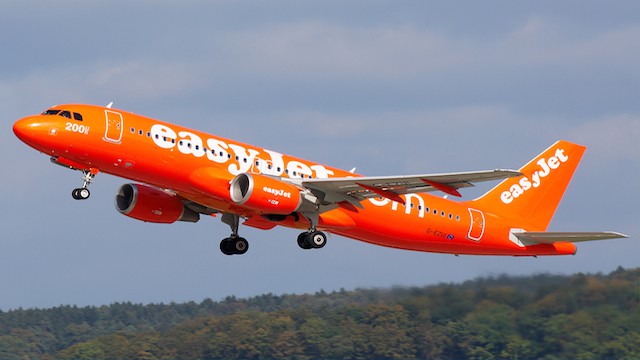Shares in budget airline easyJet (LSE: EZJ) were off to a flyer in early trading this morning following the release of the company’s latest trading update. Here’s why the stock is in demand.
“Strong start”
Following on from encouraging comments made when announcing results for the last full year, the Luton-based airline reported a 14.4% rise in revenue in the first quarter of 2017/18 to £1.14bn (compared to £997m over the same period in 2016/17). Revenue per seat growth came in at 6.6% once foreign exchange fluctuations had been taken into account — slightly better than perhaps some analysts were expecting.
In addition to growing the number of passengers carried by 8% to 18.8m, the FTSE 100 constituent confirmed that its acquisition of the recently-demised Air Belin operations at Berlin Tegel airport had been completed in mid-December with its flying programme commencing on 5 January.
Should you invest £1,000 in Paypoint Plc right now?
When investing expert Mark Rogers has a stock tip, it can pay to listen. After all, the flagship Motley Fool Share Advisor newsletter he has run for nearly a decade has provided thousands of paying members with top stock recommendations from the UK and US markets. And right now, Mark thinks there are 6 standout stocks that investors should consider buying. Want to see if Paypoint Plc made the list?
New CEO Johan Lundgren confirmed that the company had experienced a “strong start” to the 2017/18 financial year thanks in part to the aforementioned growth in revenue but also due an ongoing focus on reducing costs (roughly £28m of savings were generated in Q1). Looking forward, he revealed a number of goals that the £6.2bn cap was aiming to achieve in 2018. These include increasing passenger numbers to approximately 90m, growing its fleet to more than 300 aircraft by spring and rolling out its full summer schedule at Berlin Tegel. Perhaps understandably, he chose not to comment on rumours that easyJet would shortly join forces with Air France-KLM to acquire bankrupt Italian carrier Alitalia — a move that would only serve to increase the former’s share of the budget market.
Early indications suggest the company is off to a good start as far as Q2 trading is concerned with roughly 60% of expected bookings already secured — a figure slightly ahead of that achieved in the same period in 2017. Revenue per seat is now expected to grow by “mid-to-high single-digits” over the next quarter, although the timing of Easter will impact numbers in Q3.
So a very encouraging update from the airline. The question is, are the shares still worth buying, especially after the 60% price rise already achieved over the last 12 months?
Still a buy?
Right now, easyJet’s stock changes hands at 17 times earnings for the current year — a considerable premium to industry peers like International Consolidated Airlines and arch-rival Ryanair (at 7 and 14 times earnings respectively). When you consider the cyclical nature of airline stocks and the shadow of Brexit, such a valuation doesn’t appear all that attractive.
On the flip side, a PEG ratio of just 0.6 for the current financial year suggests that new investors would still be buying expected growth at a very reasonable price. Having fallen for the last couple of years, dividends are also expected to rise in 2017/18 by roughly 8%, followed by a 34% rise is in 2018/19. While hardly the biggest payer, the fact that easyJet’s 2.8% forecast yield for the new financial year is covered twice by profits makes dividends look safer than some in the FTSE 100. In addition to this, the company possesses a thoroughly robust balance sheet with £357m in net cash at the end of Q1.
While no investment is without risk and airlines won’t necessarily have an easy ride over 2018, today’s update suggests easyJet’s stock is still worthy of consideration for those who believe current momentum will continue.








